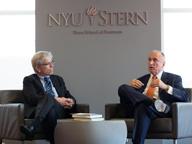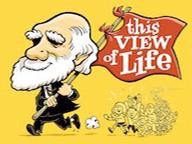Business and Policy Leader Events
—
Block Lunch with Dambisa Moyo, International Economist
—

Dambisa Moyo, international economist, joins Dean Peter Henry and MBA students for NYU Stern’s Block Lunch this fall.
Business and Policy Leader Events
—

Dambisa Moyo, international economist, joins Dean Peter Henry and MBA students for NYU Stern’s Block Lunch this fall.




















